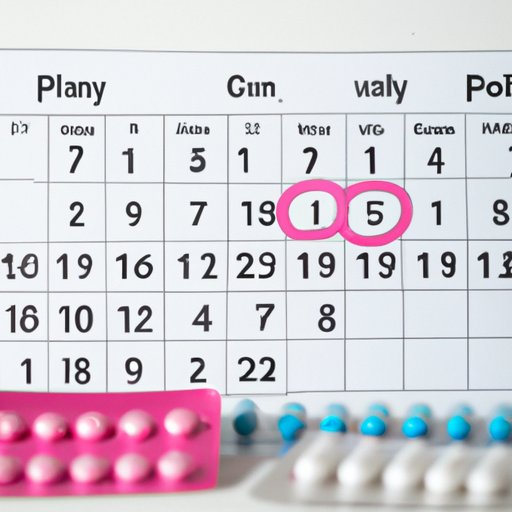Introduction
Birth control pills are a popular form of contraception that can help you prevent unwanted pregnancy. These pills contain hormones that work together to stop ovulation, so a woman’s body doesn’t release eggs that can be fertilized. There are two main types of birth control pills – combination pills and progestin-only pills – and understanding the differences between them can help you choose the best type for your needs.
It’s important to understand why starting birth control is important if you’re sexually active or looking to become sexually active. According to the Centers for Disease Control and Prevention (CDC), “Birth control pills are very effective when taken correctly. They can lower the risk of becoming pregnant by up to 99%.”
Types of Birth Control Pills and How to Start Taking Them
Combination pills are the most common type of birth control pill. These pills contain both estrogen and progestin hormones, which work together to stop ovulation and thicken cervical mucus to block sperm from entering the uterus. Combination pills come in 21-day or 28-day packs, and they should be taken once a day at the same time every day.
Progestin-only pills (sometimes called mini-pills) contain only progestin hormones. They don’t stop ovulation, but they do thicken cervical mucus and make it harder for sperm to reach an egg. Progestin-only pills must be taken at the same time every day, without missing any doses.
Instructions for starting birth control vary slightly depending on the type of pill you’re taking. With combination pills, you’ll usually start taking them on the first day of your period. If you start later than this, you’ll need to use a backup method of contraception for seven days. With progestin-only pills, you can start taking them at any time during your cycle, but you’ll need to use a backup method of contraception for two days.

Choosing the Right Birth Control Pill
When choosing a birth control pill, it’s important to consider your health history and lifestyle. Certain medical conditions, such as high blood pressure or a history of blood clots, may mean that combination pills aren’t suitable for you. Speak with your doctor about your medical history and any other medications you’re taking to ensure you’re choosing the right pill for you.
It’s also important to consider your lifestyle when choosing a birth control pill. Combination pills require more discipline because you have to remember to take them every day at the same time. Progestin-only pills can be more forgiving if you miss a dose. Speak with your doctor about the pros and cons of each type of pill to decide which one will work best for you.

Benefits of Birth Control Pills
In addition to preventing unwanted pregnancy, birth control pills have many other benefits. A study published in The Journal of Clinical Endocrinology & Metabolism found that taking birth control pills can increase a woman’s control over her fertility. This means that women can plan when they want to get pregnant, rather than relying on chance.
Birth control pills can also reduce the severity of menstrual cycle symptoms, such as cramps, bloating, and mood swings. And according to the American Cancer Society, using birth control pills for five years or longer can reduce the risk of certain cancers, including ovarian and endometrial cancer.
Tips for Remembering to Take a Birth Control Pill
Remembering to take a birth control pill every day can be challenging. Here are some tips to help you stay on track:
- Set an Alarm: Set a daily reminder on your phone or other device to remind you to take your pill.
- Link Taking the Pill with Another Daily Activity: Link taking your pill to another daily activity, such as brushing your teeth or eating breakfast.
- Keep Track with a Calendar: Mark off days on a calendar after you take your pill to keep track of when you need to take your next dose.

What to Do if You Miss a Dose of Birth Control Pill
If you forget to take your birth control pill, it’s important to take it as soon as you remember. However, if you’ve forgotten to take your pill for more than 12 hours, you may need to take emergency contraception. Speak with your doctor about your options and what to do in case of missed doses.
Conclusion
Starting birth control pills can be an effective way to prevent unwanted pregnancy and manage menstrual cycle symptoms. There are two main types of birth control pills – combination pills and progestin-only pills – and understanding the differences between them can help you choose the best type for your needs. It’s important to consider your health history, lifestyle, and preferences when selecting a birth control pill, and to speak with your doctor if you have any questions or concerns. Finally, setting reminders and tracking your progress with a calendar can help you remember to take your pill every day.
By following these steps, you can get started on birth control and enjoy the benefits of increased control over fertility, improved menstrual cycle symptoms, and protection against certain cancers.
(Note: Is this article not meeting your expectations? Do you have knowledge or insights to share? Unlock new opportunities and expand your reach by joining our authors team. Click Registration to join us and share your expertise with our readers.)
